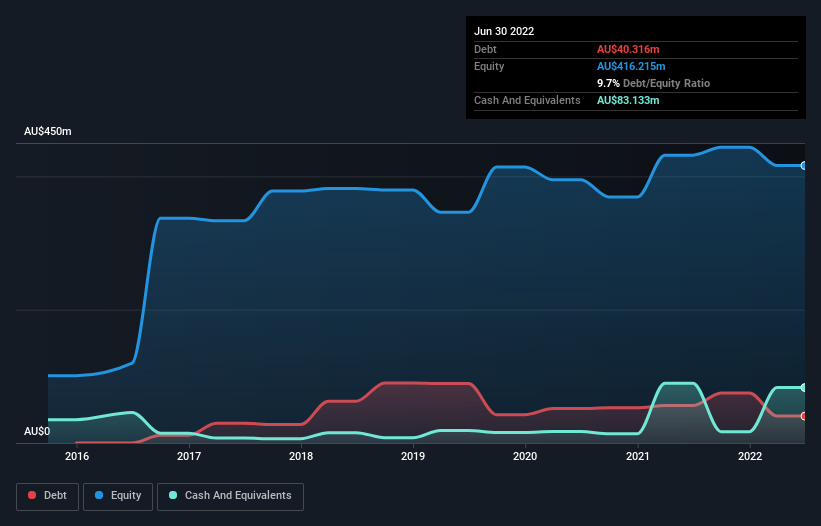Is Superloop (ASX:SLC) Using Debt In A Risky Way?
David Iben put it well when he said, 'Volatility is not a risk we care about. What we care about is avoiding the permanent loss of capital.' So it seems the smart money knows that debt - which is usually involved in bankruptcies - is a very important factor, when you assess how risky a company is. As with many other companies Superloop Limited (ASX:SLC) makes use of debt. But the more important question is: how much risk is that debt creating?
When Is Debt Dangerous?
Debt assists a business until the business has trouble paying it off, either with new capital or with free cash flow. Ultimately, if the company can't fulfill its legal obligations to repay debt, shareholders could walk away with nothing. While that is not too common, we often do see indebted companies permanently diluting shareholders because lenders force them to raise capital at a distressed price. Having said that, the most common situation is where a company manages its debt reasonably well - and to its own advantage. The first thing to do when considering how much debt a business uses is to look at its cash and debt together.
See our latest analysis for Superloop
How Much Debt Does Superloop Carry?
The image below, which you can click on for greater detail, shows that Superloop had debt of AU$40.3m at the end of June 2022, a reduction from AU$56.1m over a year. But it also has AU$83.1m in cash to offset that, meaning it has AU$42.8m net cash.
How Strong Is Superloop's Balance Sheet?
The latest balance sheet data shows that Superloop had liabilities of AU$57.7m due within a year, and liabilities of AU$79.7m falling due after that. On the other hand, it had cash of AU$83.1m and AU$27.0m worth of receivables due within a year. So it has liabilities totalling AU$27.3m more than its cash and near-term receivables, combined.
Of course, Superloop has a market capitalization of AU$348.2m, so these liabilities are probably manageable. Having said that, it's clear that we should continue to monitor its balance sheet, lest it change for the worse. Despite its noteworthy liabilities, Superloop boasts net cash, so it's fair to say it does not have a heavy debt load! There's no doubt that we learn most about debt from the balance sheet. But it is future earnings, more than anything, that will determine Superloop's ability to maintain a healthy balance sheet going forward. So if you want to see what the professionals think, you might find this free report on analyst profit forecasts to be interesting.
In the last year Superloop wasn't profitable at an EBIT level, but managed to grow its revenue by 159%, to AU$248m. So there's no doubt that shareholders are cheering for growth
So How Risky Is Superloop?
By their very nature companies that are losing money are more risky than those with a long history of profitability. And we do note that Superloop had an earnings before interest and tax (EBIT) loss, over the last year. Indeed, in that time it burnt through AU$30m of cash and made a loss of AU$62m. With only AU$42.8m on the balance sheet, it would appear that its going to need to raise capital again soon. Importantly, Superloop's revenue growth is hot to trot. While unprofitable companies can be risky, they can also grow hard and fast in those pre-profit years. For riskier companies like Superloop I always like to keep an eye on whether insiders are buying or selling. So click here if you want to find out for yourself.
At the end of the day, it's often better to focus on companies that are free from net debt. You can access our special list of such companies (all with a track record of profit growth). It's free.
Have feedback on this article? Concerned about the content? Get in touch with us directly. Alternatively, email editorial-team (at) simplywallst.com.
This article by Simply Wall St is general in nature. We provide commentary based on historical data and analyst forecasts only using an unbiased methodology and our articles are not intended to be financial advice. It does not constitute a recommendation to buy or sell any stock, and does not take account of your objectives, or your financial situation. We aim to bring you long-term focused analysis driven by fundamental data. Note that our analysis may not factor in the latest price-sensitive company announcements or qualitative material. Simply Wall St has no position in any stocks mentioned.
Join A Paid User Research Session
You’ll receive a US$30 Amazon Gift card for 1 hour of your time while helping us build better investing tools for the individual investors like yourself. Sign up here

